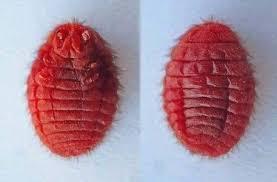this is the bug used for red candies.
Categories
- Sustainability
- Home
- Wellness
- Theater
- Sports
- Shopping
- Religion
- Party
- Other
- Networking
- Music
- Literature
- Art
- Health
- Gardening
- Games
- Food
- Fitness
- Film
- Drinks
- Dance
- Crafts
- Causes
Read More
Jawaharlal Nehru 🇮🇳
Most Noteworthy, Jawaharlal Nehru was the first Prime Minister of India. He was a man of great...
The Significance of Dark Matter
Dark matter is one of the most intriguing mysteries in astronomy, constituting approximately 27%...
Sustainable Development and Psychology
Sustainable Development and Psychology: Bridging Mindsets for a Greener Future
In a world...
A Day At Beach
The sun, a fiery orange orb, hung low in the sky, casting a warm golden glow over the...
×
Your daily access limit has been reached. Please try again tomorrow.
© 2025 GoSharpener Pvt.Ltd.
Refund and Cancellation policy - We do not entertain any refunds and cancellation
Refund and Cancellation policy - We do not entertain any refunds and cancellation


Allergic reactions
Some people may experience allergic reactions to cochineal extract, including hives, itchy skin, rhinitis, diarrhea, and anaphylaxis.
Labeling
In the US, the FDA requires that cochineal extract be identified by name on food labels.
Pasteurization
The FDA also requires that cochineal extract be pasteurized to destroy any salmonella.
Vegetarian
Cochineal is not suitable for vegetarians because it's made from insects.
Cochineal extract is derived from the female cochineal, a type of insect that lives on prickly pear cacti. The insects are sun-dried, crushed, and treated with an acidic alcohol solution to produce carminic acid, which is then used to make cochineal extract.
Cochineal extract is used in many foods and drinks, as well as in cosmetics and pill coatings.